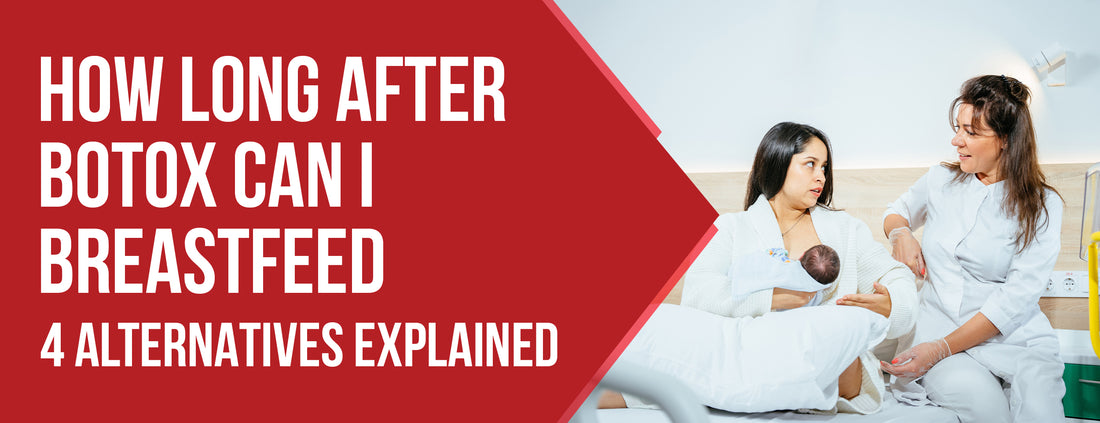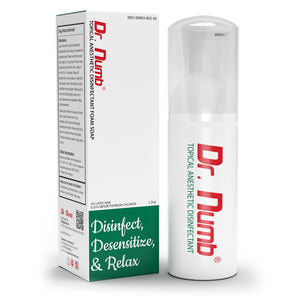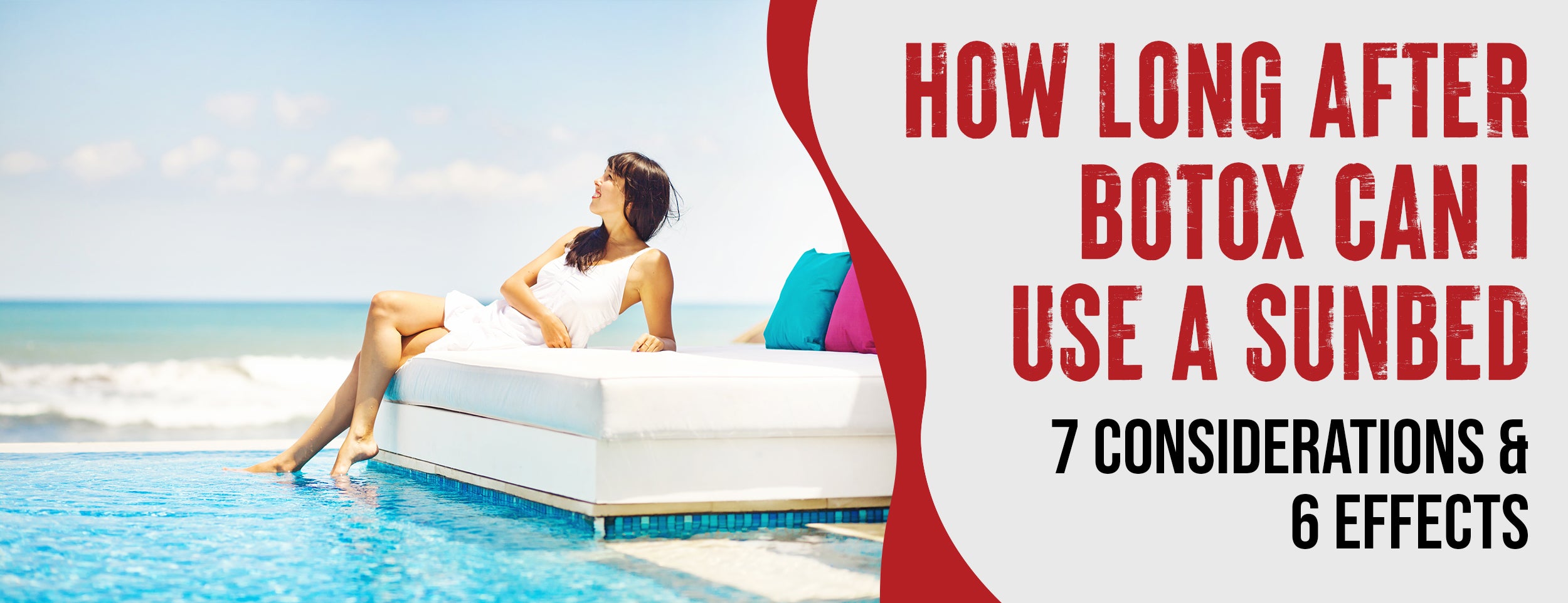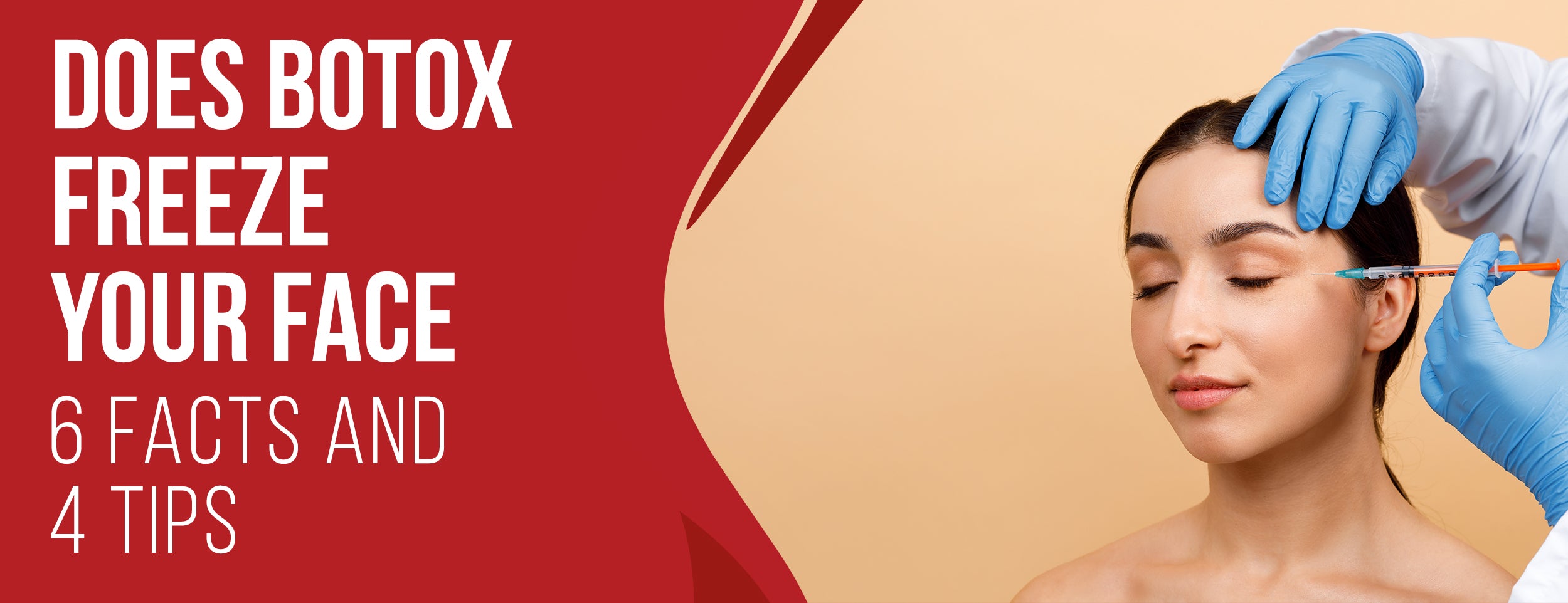Botox and breastfeeding may seem unlikely, but they go hand in hand for many new mothers. If you're a breastfeeding mom considering or recently undergoing Botox treatment, you probably wonder, "How long after Botox can I breastfeed."
Simply put, it's highly unlikely that Botox would enter your breast milk or harm your baby. Some women wait up to 48 hours before providing breast milk after injections, but no evidence supports that this significantly reduces the already low risk to the infant.
This comprehensive guide will delve into the essentials of understanding Botox and breastfeeding. We'll provide practical guidelines to navigate this journey and explore alternative options for breastfeeding mothers. Rest assured, you can make informed decisions while nurturing your little one.
How Long After Botox Can I Breastfeed: Facts To Know

If you're breastfeeding or planning to, you may have concerns about the safety of Botox for both you and your baby. Let's explore guidelines and alternative options and debunk common myths surrounding Botox and its compatibility with breastfeeding.
Guidelines For Breastfeeding After Botox
The effects of Botox on breast milk and breastfeeding have not been well studied. There is no conclusive evidence that Botox can pass into breast milk or harm the baby. There is no guarantee of complete safety either. As the FDA advises, breastfeeding women should consult their doctors before receiving Botox injections.
Some experts believe that the low amount of Botox used for cosmetic or medical purposes is unlikely to affect the baby. They suggest that the toxin remains in the injected tissue and is unlikely to cross into the bloodstream or breast milk.
Caution is advised as there is still a chance of absorption or diffusion of the toxin, potentially leading to serious side effects like muscle weakness, difficulty breathing, or botulism - a rare but life-threatening condition caused by botulinum toxin poisoning.
To reduce the chances of your baby being exposed to Botox, it is advisable to follow these recommendations:
- It is recommended to wait until your baby is six months old before considering Botox injections. By this point, their immune system will be more developed, and they will be less reliant on breast milk for nutrition.
- Before the procedure, ensure to breastfeed your baby and wait a few hours afterward before breastfeeding again. This precautionary measure can help minimize the chances of any residual toxin transferring to your baby through breast milk.
- It is advisable to avoid getting Botox injections in areas close to your breasts, such as the neck or chest. This precautionary step can help prevent the toxin from migrating to your breast tissue or milk ducts.
- After receiving Botox injections, carefully monitor your baby for any signs of adverse reactions. If you notice symptoms such as droopy eyelids, weak suckling, poor feeding, lethargy, or difficulty breathing, it is crucial to contact your doctor or seek immediate emergency medical attention.

Alternative Options For Breastfeeding Mothers
If you feel uncomfortable receiving Botox injections while breastfeeding, alternative options are available to enhance your appearance or manage your medical condition. Consider exploring the following alternatives:
- Facial creams and serums: These products are designed to moisturize, nourish, and shield your skin against aging and environmental damage. Look for hyaluronic acid, vitamin C, retinol, peptides, antioxidants, and sunscreen.
- Facial exercises and massage: Facial massage and exercise techniques aid in toning and tightening facial muscles, enhancing blood circulation, and promoting collagen production. They can be easily performed at home or with guidance from a physiotherapist or an aesthetician.
- Acupuncture and acupressure: Rooted in ancient Chinese practices, these methods involve stimulating specific points on the body using needles or pressure. They effectively relax tense muscles, reduce pain and inflammation, and restore the body's energy flow.
- Natural remedies: This category encompasses herbs, supplements, essential oils, homeopathy, and dietary modifications that address various health concerns. However, it's important to consult your doctor before using any natural remedies while breastfeeding, as some may not be safe or effective.
Common Myths About Botox and Breastfeeding

There are numerous myths and misconceptions surrounding Botox and breastfeeding that can potentially bewilder or deceive individuals. Allow me to shed light on a few of them:
Myth: Botox Has An Impact on Milk Supply or Quality
Fact: No evidence suggests that Botox affects milk production or composition. Stress, anxiety, dehydration, hormonal changes, or medication use can influence milk supply or quality. Thus, it is crucial to prioritize physical and emotional self-care during breastfeeding.
Myth: Botox Results In An Unnatural or Frozen Appearance
Fact: Botox can produce a natural and rejuvenated look when administered by a skilled and experienced injector who adjusts the dose and injection location based on your facial anatomy and expression. Yet, Botox can lead to unwanted side effects if overdone or done incorrectly, including droopy eyelids, asymmetry, or loss of facial expression.

Myth: Botox Is Addictive or Habit-forming
Fact: Botox is not a substance that can create physical or psychological dependence. Nevertheless, some individuals may develop an emotional attachment to the outcomes of Botox, leading them to seek regular injections to maintain their desired appearance. This behavior can result in excessive spending, unrealistic expectations, or dissatisfaction with their natural features.
Conclusion
Botox is a treatment that can help improve your appearance or treat your medical condition by relaxing your facial muscles. However, if you are breastfeeding or planning to breastfeed, you may be concerned about Botox's safety for you and your baby.
Whether Botox affects breast milk or breastfeeding has not been studied well, and there is no definitive answer to how long after Botox you can breastfeed. It is best to consult your doctor before getting Botox injections and carefully weigh the benefits and risks.
Consider alternative options that can help you achieve your goals without using Botox. Remember that your and your baby’s health is the most important factor when deciding about your body.














